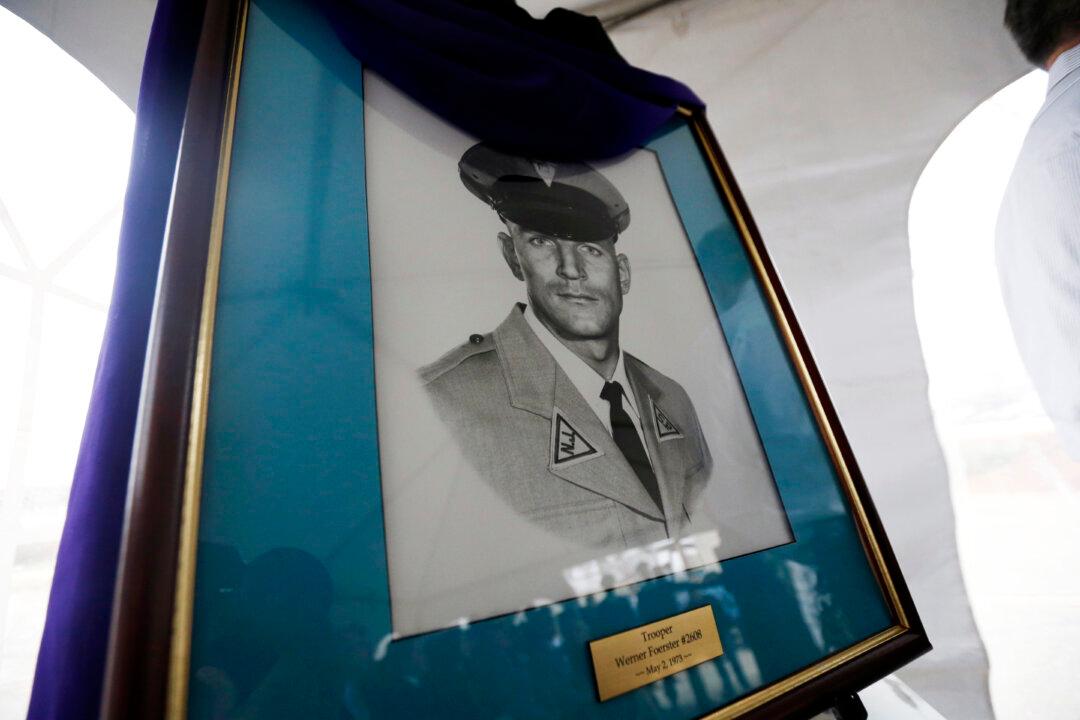The New Jersey Supreme Court ordered to release on parole the killer of a New Jersey state trooper, thus overturning the decision of the parole board that denied to release the murderer. The court ruling drew backlash from the governor, the state’s Attorney General, lawmakers, and police.
The New Jersey Supreme Court ruled Tuesday with a 3–2 vote to grant parole to Sundiata Acoli, a former member of a terrorist group who was convicted of killing New Jersey state trooper Werner Foerster in 1973.





